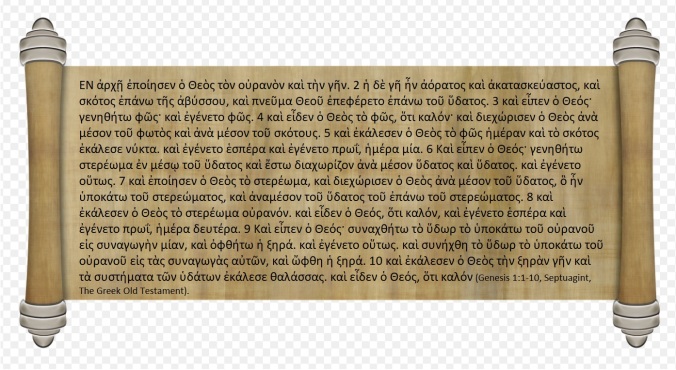“Go therefore and make disciples of all the nations…teaching them to observe all that I commanded you, and lo, I am with you always, even to the end of the age” (Matthew 28:19-20, NASB).
——————–
Contents:
1) The Gall of Bitterness (Doy Moyer)
2) “Your Reasonable Service” (Greg Gwin)
——————–

-1-
The Gall of Bitterness
Doy Moyer
“See to it that no one comes short of the grace of God; that no root of bitterness springing up causes trouble, and by it many be defiled; that there be no immoral or godless person like Esau, who sold his own birthright for a single meal. For you know that even afterwards, when he desired to inherit the blessing, he was rejected, for he found no place for repentance, though he sought for it with tears” (Heb. 12:15-17).
Bitterness is a problem of the heart. It essentially comes from telling ourselves a story about how badly we have been treated, how much we have been hurt, and how unfair others are toward us. It works together with a heart of hatred, anger, and malice, often wishing ill will on those we think have offended us. Think about what bitterness does:
1. Bitterness causes us to come short of God’s grace. A heart of bitterness is not a heart for grace. If we are seeking after the grace of God, we must cut away bitterness, for it cannot coexist with grace.
2. The root of bitterness will spring up and cause trouble. It is a poison that infects and kills, and through which many become defiled. All it takes is one bitter, angry person to wreak so much havoc that many will be destroyed. One bitter person can turn away many souls from Christ, leaving in its wake division and heartache, wherein is found “disorder and every evil thing” (James 3:16).
3. Bitterness stands contrary to repentance. While bitterness resides in the heart, there will be anger, excuses, complaining, and failure to repent. Shortly after Simon was baptized, he jealously desired the ability of the apostles to lay hands on others to bestow the Spirit. Peter told him that his heart was not right with God, that he needed to repent and pray for forgiveness, “for I see that you are in the gall of bitterness and in the bondage of iniquity” (Acts 8:21-23). Bitterness puts us in the bondage of sin; it is a horrible master that only pays the wages of death (cf. Rom. 6:23).
4. Bitterness stands between people. Grudges cause division. Where there is bitterness, there can be no forgiving one another. When unwarranted divisions occur among churches and Christians, mark it down: bitterness will almost certainly be a factor! It is a wedge that destroys peace and unity.
5. Bitterness goes hand in hand with jealousy and selfish ambition. “But if you have bitter jealousy and selfish ambition in your heart, do not be arrogant and so lie against the truth” (James 3:14). Bitterness coupled with pride makes for liars who will invariably speak against truth. It destroys good, sound thinking and warps our perspective.
Recall that when Jacob stole Esau’s blessing, Esau became bitter and bore a grudge (Gen. 27:41). This consumed Esau so much that he wanted to kill Jacob. He found no place for repentance in his anger and bitterness. How much quality of life and happiness did he give up in order to remain angry and hateful toward his brother? Bitterness will rip out our hearts and cause us to hate one another. There can be no place for this in the heart of a child of God. “Be angry, and yet do not sin; do not let the sun go down on your anger, and do not give the devil an opportunity” (Eph. 4:26).
Paul spoke of “spending our life in malice and envy, hateful, hating one another” (Titus 3:3). John was clear about the problem of those who hate their brothers:
1. They are in darkness and blinded (1 John 2:9, 11).
2. Their attitude is such that it renders them as murderers (1 John 3:15).
3. Those who say they love God but hate a brother are liars (1 John 4:20).
Hatred, anger, bitterness are all cut from the same cloth. These are works of the flesh that will keep people out of God’s kingdom. Therefore:
“Let all bitterness and wrath and anger and clamor and slander be put away from you, along with all malice. Be kind to one another, tender-hearted, forgiving each other, just as God in Christ also has forgiven you” (Eph. 4:31-32).
It matters not how much we think another has wronged us. There is no place for bitterness. Let’s meditate, therefore, on what it means to be wise:
“Who among you is wise and understanding? Let him show by his good behavior his deeds in the gentleness of wisdom. But if you have bitter jealousy and selfish ambition in your heart, do not be arrogant and so lie against the truth. This wisdom is not that which comes down from above, but is earthly, natural, demonic. For where jealousy and selfish ambition exist, there is disorder and every evil thing. But the wisdom from above is first pure, then peaceable, gentle, reasonable, full of mercy and good fruits, unwavering, without hypocrisy. And the seed whose fruit is righteousness is sown in peace by those who make peace” (James 3:13-18).
— Via Bulletin Articles of the Vestavia church of Christ, January 31, 2016
——————–

-2-
“Your Reasonable Service”
Greg Gwin
Do you believe that there is a God? Are you convinced that He is the Creator of the entire universe? Have you examined the evidence and become persuaded that He not only has made everything, but also sustains all things that we see and know (Col. 1:16,17)? There is ample proof, and believing in these things requires no ‘blind leap of faith.’ Rather, it is a logical conclusion based upon the evidence. The apostle Paul said: “For of him, and through him, and to him, are all things: to whom be glory for ever” (Rom. 11:36). Those who will honestly study the matter must surely agree.
Having made this point, Paul proceeds in the next verse to make a plea based upon the truth that God is the Creator and sustainer of the universe: “I beseech you therefore, brethren, by the mercies of God, that ye present your bodies a living sacrifice, holy, acceptable unto God, which is your reasonable service” (12:1) Do you see it? The emphasis here is upon what is “reasonable.” If God made all things, and continues to provide the necessary support to keep all things functioning, then it is simply the “reasonable” thing for us to serve Him. Think about it: we are His; we belong to Him; He made us; He upholds us. It only makes sense for us, therefore, to do what He wants us to do.
In this text, the phrase “present your bodies a living sacrifice” indicates the degree of this “reasonable service.” We are not being called upon to offer ourselves to Him on a part-time basis — maybe a few hours per week, or a couple of days each year. Instead, we are to give ourselves completely over to Him.
In our selfish, self-centered age there are many who are totally unfamiliar with the notion of “sacrifice.” They are the center of their own universe. They think constantly of what can be gained for self. They completely ignore the duty that is due to the One who made them and constantly blesses them with the things that maintain their existence. Such conduct is absolutely ‘unreasonable.’
If you believe in God, logic and reason demand that you humbly serve Him. Are you doing so? Think!
— Via The Beacon, February 3, 2019
——————–
The Steps That Lead to Eternal Salvation
1) Hear the gospel, for that is how faith comes (Rom. 10:17; John 20:30-31).
2) Believe in the deity of Christ (John 8:24; John 3:18).
3) Repent of sins (Luke 13:5; Acts 17:30).
4) Confess faith in Christ (Rom. 10:9-10; Acts 8:36-38).
5) Be baptized in water for the remission of sins (Mark 16:16; Acts 2:38; 22:16; Rom. 6:3-4; Gal. 3:26-27; 1 Pet. 3:21).
6) Continue in the faith, living for the Lord; for, if not, salvation can be lost (Heb. 10:36-39; Rev. 2:10; 2 Pet. 2:20-22).
——————–
Tebeau Street
CHURCH OF CHRIST
1402 Tebeau Street, Waycross, GA 31501
Sunday services: 9:00 a.m. (Bible class); 10 a.m. & 5 p.m. (worship)
Wednesday: 7 p.m. (Bible class)
evangelist/editor: Tom Edwards (912) 281-9917
Tom@ThomasTEdwards.com
http://thomastedwards.com/go (Older version of Gospel Observer website without pictures, but back to March 1990)
http://tebeaustreetchurchofchrist.org/
http://ThomasTEdwards.com/audioser.html (audio sermon)






